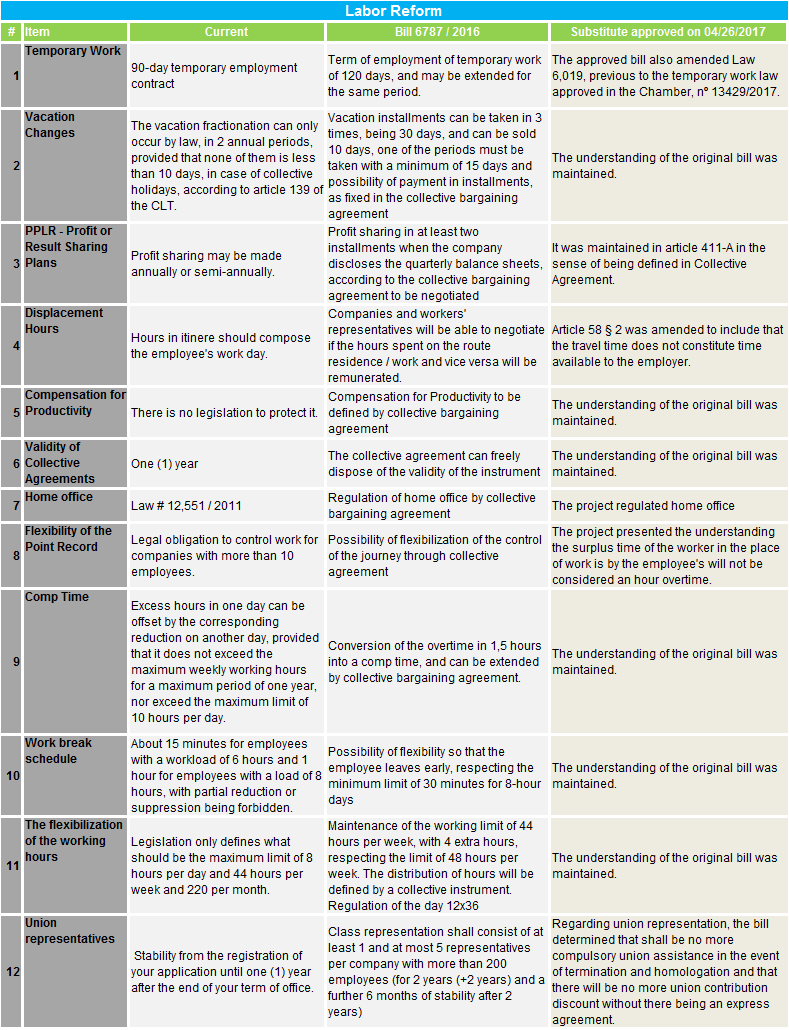On April 26, 2017, the labor reform bill (6,787 / 2016) which amended the Consolidation of Labor Laws (CLT) was approved. The project was voted out of the highlights, which will be voted on at the next session of the House of Representatives.
Among the changes of the project in relation to the CLT is the definition in fine values for not registering employees in the registration book, the increase of the part-time working day, the election of workers' representatives in the workplace (in the cases described by the bill), the installment of vacations for up to three times, with payment proportional to the installments, the establishment that the collective agreement and collective agreement shall prevail on the law in points such as the work day, hour bank, minimum half hour feeding interval, teleworking, regime of warning and intermittent work, favoring the principle of minimum intervention in collective autonomy.
The bill also standardizes the counting of CLT's procedural deadlines under the terms of the New Code of Civil Procedure, defining in Article 775 the hypotheses of extension. It changes various articles of the law that provides for temporary employment, which was prior to Law 13429 recently voted in the House on temporary employment.
According to the rapporteur, Mr. Rogério Marinho (PSDB-RN), which presents the Global Sub-Replacement, paragraphs 1, 3 and 7 are revoked, paragraphs 4, 6 and 10 of article 477 have been rewritten, thus no longer exists the compulsory attendance of the union in the termination of the labor contract and its homologation, as well as any contribution be it of workers or employers shall only be discounted by express authorization. Regarding unhealthiness, the rapporteur proposes that during the entire period of gestation the worker should move away from activities that are unhealthy regardless of the degree.
In addition, paragraph 2 was included in article 4, where the period of time that the employee stays in the company will not be computed as overtime, even if it exceeds the limit of five minutes set forth in art. 58 of the CLT, by its own choice, to carry out particular activities.
The Substitute also allows the negotiation of companies for the intermittent work, which would be the work performed for a specific period of time, and the value of the hour worked, where the worker will receive for the period worked. In addition there was a change in the sense of not allowing the dismissed employee to provide service as outsourced. Regarding the displacement, the project considered that the periods of travel to work should not be considered as a working day even if the place is difficult to reach or without public transportation, since this period the employee is not available to the employer , Article 58 § 2.
Below the comparative table with the approved project, the initial project and the law in force:

For more information, contact us:
Marcelo Sampaio - [email protected]
Partner - Head of Tax
Leonardo Biar - [email protected]
Head of Labor & Social Security Services
